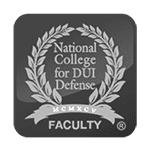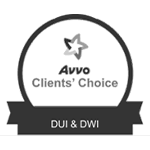
Introduction to DUI Enhancements
Understanding DUI Enhancements in California
When facing a DUI charge in California, it's important to understand the potential enhancements that could impact your case. DUI enhancements are additional penalties or consequences that can be added to a standard DUI charge based on specific circumstances. These enhancements can result in harsher penalties, including increased fines, longer license suspensions, mandatory alcohol education programs, and even jail time.
Common DUI enhancements in California include:
- High blood alcohol concentration (BAC) levels
- Prior DUI convictions
- Reckless driving or speeding
- Driving with a minor in the vehicle
- Refusal to submit to a chemical test
It's crucial to have a knowledgeable DUI defense attorney on your side who can navigate the complexities of DUI enhancements and work to minimize their impact on your case. Our experienced team at The Law Offices of Casey & Angelos is here to provide the guidance and representation you need during this challenging time.
Refusal
In California, the law presumes that you have consented to a chemical test if you are stopped for driving under the influence. Case law permits you to withdraw that consent. A refusal, however, is not without additional consequences. The prosecutor will try to enhance your DUI penalties if you refuse to submit to a breath or blood chemical test, such as mandatory time in jail.
The Law
A prosecutor may use two different code sections to enhance penalties for a refusal. California vehicle Code 23577 states:
- If any person is convicted of a violation of Section 23152 or 23153, and at the time of the arrest leading to that conviction that person willfully refused a peace officer’s request to submit to, or willfully failed to complete, the chemical test or tests pursuant to Section 23612, the court shall impose the following penalties:
- If the person is convicted of a first violation of Section 23152, notwithstanding any other provision of subdivision (a) of Section 23538, the terms and conditions of probation shall include the conditions in paragraph (1) of subdivision (a) of Section 23538.
- If the person is convicted of a first violation of Section 23153, the punishment shall be enhanced by an imprisonment of 48 continuous hours in the county jail, whether or not probation is granted and no part of which may be stayed, unless the person is sentenced to, and incarcerated in, the state prison and the execution of that sentence is not stayed.
- If the person is convicted of a second violation of Section 23152, punishable under Section 23540, or a second violation of Section 23153, punishable under Section 23560, the punishment shall be enhanced by an imprisonment of 96 hours in the county jail, whether or not probation is granted and no part of which may be stayed, unless the person is sentenced to, and incarcerated in, the state prison and execution of that sentence is not stayed.
- If the person is convicted of a third violation of Section 23152, punishable under Section 23546, the punishment shall be enhanced by an imprisonment of 10 days in the county jail, whether or not probation is granted and no part of which may be stayed.
- If the person is convicted of a fourth or subsequent violation of Section 23152, punishable under Section 23550 or 23550.5, the punishment shall be enhanced by imprisonment of 18 days in the county jail, whether or not probation is granted and no part of which may be stayed.
California Vehicle Code 23578 states:
In addition to any other provision of this code, if a person is convicted of a violation of Section 23152 or 23153, the court shall consider a concentration of alcohol in the person.
AWARDS & ASSOCIATIONS
Since the establishment of this law firm in 1998, we have strived to provide our clients with the highest quality representation and a level of customer service that is unparalleled by any firm anywhere.
Our FAQ
Frequently Asked Questions
Have questions? We are here to help. Still have questions or can't find the answer you need? Give us a call at 619-930-5490 today!
-
I was not drunk. Can I be charged with DUI for smoking marijuana or taking prescription medications?If you were arrested for DUI but didn’t have alcohol in your system, you can still be charged with DUI. There are a number different charges associated with misdemeanor and felony DUI. You can be charged with an (f) count if you consumed any intoxicating drugs, regardless of whether they are illegal or prescription. But, if you were under the influence of both alcohol and drugs, then you can be charged with an (e) count for driving under the influence of drugs and alcohol.
-
Aren’t the police supposed to read me my Miranda rights?It seems like common sense that an officer must read you your Miranda rights. Although this is true in a situation where you are being interrogated, for purposes of DUI, you don’t have that same right. Many times an officer will ask you questions prior to administering field sobriety tests and placing you under arrest. These questions have been classified as “pre-investigatory” questions and are not subject to Miranda. Therefore, it is important you speak with an experience DUI Defense Firm to know whether or not the failure to read you your rights will affect your case.
-
I was involved in an accident and someone was injured. Will I be charged with a Felony?Maybe. You can be charged with Felony DUI whenever anyone other than yourself is injured. Even if the injuries were to a friend and their injuries are minor, you can still be charged with a felony. Penalties for a Felony DUI can be severe because your can face time in prison.








